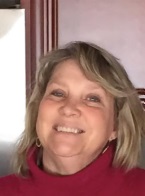IDENTIFYING SUPPORTS AND SERVICES THAT WORK BEST
As a result of this collaboration, the teacher worked with the consultant to create protected space for the child in the classroom and modeled ways that the child could invite a peer to play with him. The teacher also learned from spending time with the mother, how to loan her calmness to the child or co-regulate him when he began to get upset. Over the next few months, the number of times the child fled group activities or became aggressive became less and less.
The director reversed her request to have the child leave the center, and worked with the mother to follow the necessary steps to get her son support, when it was time for him to transition to the public school.
In this example, as in many others where teams worked together to develop a Hello My Name Is profile, the caring adults in a child's life transform their behaviors of labelling a child as challenging and demanding expulsion to empathizing with a child and family, jointly problem solving and forming partnerships between families and educators. IECMH consultants know that change does not occur by just focusing on what is wrong with a child but by creating a shared vision of how best to support the child and all of the important adults in that child's life.•

References
- Catalano, C.G., Hernandez, P. & Wolters, P. (2022). A Child’s Self-Statement: Who Am I? Exceptional Parent Magazine, 32 (4), 60-65. (Reprint of 2002 article -Invited)
- Center for the Study of Social Policy (2022). How to Communicate Effectively About Early Relational Health: What It Is and Why It Matters A Messaging Guide. Retrieved from https://cssp.org/
- Center of Excellence for Infant and Early Childhood Mental Health Consultation (2020). Status of the evidence for infant and early childhood mental health consultation (IECMHC). http://www.iecmhc.org/documents/CoEEvidence-Synthesis.pdf
- Gilliam, W.S. (2005). Prekindergarteners left behind: Expulsion rates in state prekindergarten systems. New Haven, CT: Yale University Child Study Center. Retrieved from http://www. ziglercenter.yale.edu/publications/National%20Prek%20Study_expulsion_tcm350-34774_
- Gilliam, W.S., Maupin, A.N., Reyes, C.R., Accavitti, M., & Shic, F. (2016). Research Study Brief: Do early educators’ implicit bias regarding sex and race relate to behavior expectations and recommendations of preschool expulsions and suspensions? New Haven, CT: Yale Child Study Center
ABOUT THE AUTHORS:

For eighteen years, Jean Budd LPC, NCC, IMH E® Clinical has supported infants, toddlers, pre-schoolers and their families with a relationship-based approach to social emotional development. Her current role is Assistant Director for Infant and Early Childhood Mental Health Consultation, Socio-Emotional Formation Initiative (SEFI) at the Center for Autism and Early Childhood Mental Health, Montclair State University. Jean supports the quality improvement mission for Grow New Jersey Kids TAC — and countybased QIS efforts through collaboration with Technical Assistance Specialists and QIS managers in developing and implementing professional formation goals and plans for private childcare center professionals. She directs the team of IECMHC professionals, clinicians, and early childhood master- level educators. In addition to developing and directing the NJ state's IEMCHC team, her responsibilities include Pyramid Model and Keeping Babies and Children in Mind training, specialized training in early childhood topics, classroom and staff support in partnership to promote healthy relational and emotional development for all children and mental health consultation for individual children and their families. Jean has developed training programs based on Routines to the Third Power, Relationship based care for student parents at Project Teach high schools and Reflective Supervision/Consultation Certification workshops. She is the New Jersey Association for Infant Mental Health Endorsement Coordinator, past president and is currently an active leader for the Alliance for the Advancement of Infant Mental Health. Previously, in her role as a clinician, she promoted development of social and emotional skills for at risk families and their children in a Head Start, Early Head Start, Family Childcare Providers and Home Visiting program.

Corinne G. Catalano, Ph.D., IMH E® worked as a school psychologist at the Montclair State University (MSU) Demonstration Program from 1995 until 2005 as a member of an interdisciplinary team using a developmental, relationship-based approach to work with 3-5 year old children diagnosed with developmental delays. During that time, she developed a template to support families and professionals to write a first-person narrative about a child with the goals of deepening their understanding of individual children and supporting transitions. She wrote about this with a parent and colleague for Exceptional Parent Magazine in 2002. Corinne then went on to coordinate the Demonstration Program, a state-approved special education school program for preschool age children with pervasive developmental delays and autism spectrum disorders embedded in the MSU Ben Samuels Children's Center. The "Hello My Name Is" template became an instrumental part of parent workshops and the transition of children from the inclusive preschool classrooms at the Center to general education classrooms in their home school districts. Currently, Corinne is the Assistant Director for Consultation Services at the MSU Center for Autism and Early Childhood Mental Health. She is the project manager for the NJ Inclusive Education Technical Assistance (NJIETA) project funded by the NJ Department of Education and executed in partnership with the NJ Coalition for Inclusive Education. Corinne teaches graduate courses in MSU's Teaching and Learning Department and is a faculty member for the Infant and Early Childhood Development Ph.D. program at Fielding Graduate University. She is a member of the NJ State Interagency Coordinating Council (SICC) for Early Intervention and serves as Chair of the SICC Personnel Preparation Committee. Corinne has published her research on early childhood teacher beliefs, autism and inclusive education in the Journal of Early Childhood Teacher Education and has several book chapters.